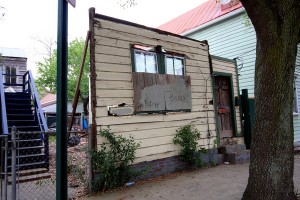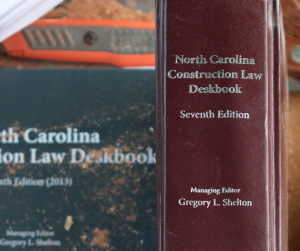By: Gregory L. Shelton
(803) 670-0028
Contractors are often asked whether they have “insurance.” This question really involves two levels of analysis. First, there are many different types of insurance: Builder’s Risk, Errors & Omissions (E&O), Commercial General Liability (CGL), Key Man, Property, etc.
In the context of construction, the question usually relates to CGL coverage. CGL coverage is designed to protect contractors and subcontractors against losses that may occur on the job arising from injuries to people and “other property” (property that is not the subject of the contract). Other property may include a car parked under scaffolding or inventory in an adjacent retail establishment.
Which brings us to the second level of analysis. Assuming our contractor does have CGL coverage, is the loss actually going to be covered? This is where the fun begins, because now we venture into the realm of language, logic, policy-making, and even some philosophy.
As a case in point, consider the South Carolina Supreme Court’s landmark decision in Crossmann Communities of N.C., Inc. v. Harleysville Mut. Ins. Co., 2011 S.C. LEXIS 2 (Jan. 7, 2011). The issue before the court was whether water damage to a condominium building caused by faulty workmanship is covered under a CGL policy. The insurer argued that coverage was not triggered because poor workmanship is not accidental. The contractor’s hands hammer the nails, tighten the screws, apply the caulk; deliberate actions that cannot be compared to a bucket of nails falling from the roof onto a vehicle or person. The owners, on the other hand, argued that the water damage was accidental, because the damage was neither foreseen nor intended.
The South Carolina Supreme Court agreed with the insurer, holding that property damage that is no more than the natural and probable consequence of faulty workmanship cannot be considered an “occurrence” (accident) covered under a CGL policy.
Crossmann has caused such a stir in the Palmetto State that two bills have been introduced in Columbia to legislatively overturn the decision. House Bill 3449 and Senate Bill 431, both pending, would require insurers to evaluate CGL claims in manner favorable to the insured. The case is also the hottest topic in the construction bar and the insurance bar.
For the time being, expect insurers to deny coverage in construction cases that arise out of faulty workmanship. As with everything else in the law, this is subject to change.
Photograph courtesy of Joan Perry (Charleston Daily Photo)


